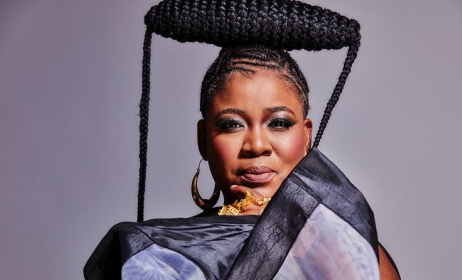Fair use debate hits South African music scene
The South African music industry and the success of its musicians are deeply dependent on the protection of their intellectual property (IP). For musicians, their creative output (their musical works, lyrics, and recordings) comprises their IP, in this case copyright. Copyright allows them to make a living by selling or licensing their work, and crucially, it gives them the power to control how their creations are used. However, with ongoing debates around the Copyright Amendment Bill, a new threat has emerged – the concept of ‘fair use.’ This could fundamentally undermine the rights of South African musicians and massively impact their ability to make a living.
 Nick Matzukis.
Nick Matzukis.
The South African Copyright Act, although considered outdated by many, provides a foundation for the business model that artists can use to maintain control over their creations. There are some exceptions in the Act when it comes to a musician’s right to stop others from using or accessing their work. This is called ‘Fair Dealing’, a list of specific and limited situations where copyrighted material can be used without permission.
The threat of fair use
The concept of fair use, which originates from the United States, poses a far more ambiguous and potentially risky alternative to the South African Fair Dealing system. Fair use is a much broader, open-ended and vague principle, and leads to unpredictable legal outcomes. While it includes considerations such as the purpose of the use, the amount of material used, and its effect on a potential market, it ultimately lacks the certainty and protection provided by Fair Dealing.
Advocates argue that adopting fair use in South Africa would modernise copyright laws to ‘future-proof’ our law, to keep up with technology. However, the current Copyright Act already allows for updates, such as adding exceptions for personal use, without needing to introduce Fair Use. This flexibility in fair dealing allows the law to evolve, and many South African musicians and industry experts oppose the uncertain nature of fair use.
Lessons from global failures
The global track record of fair use paints a concerning picture and countries like Canada and New Zealand that have adopted fair use, or similar models have seen substantial negative impacts on their creative industries.
If fair use was to be adopted in South Africa, the consequences for the music industry could be catastrophic. Currently, the South African music industry is worth around R2 billion and growing, but the implementation of Fair Use could decimate this overnight.
The copycat problem
The dangers of fair use have become evident in the use of generative artificial intelligence (GenAI) technologies. As AI systems become more advanced, they are capable of mimicking and reproducing artistic works, including music, based on existing data. This raises a host of new concerns for copyright holders.
GenAI learns from the work of artists, copies small portions of it and creates something new based on that input. But what will happen when AI stops making copies but still references original work to ‘learn’ and thereby starts producing ‘original’ content that competes with the very artists it learned from? Major record labels are already suing AI generators that scrape their artists’ music to train their models. The battle over who owns AI-generated content is heating up, and fair use only complicates this further. If the concept of ‘Fair Use’ allows AI to copy or manipulate artists’ work without compensation, musicians could face a huge threat to their livelihoods.
It gets worse
Not only has the legislature proposed the introduction of Fair Use, but it has sought to create a hybrid of Fair Use and Fair Dealing. This makes no jurisprudential sense at all and would make South Africa the only country in the world with such a system. The good news, however, is that the Copyright Amendment Bill has recently been referred by the State President to the Constitutional Court, since he doubts its constitutionality. The case will be heard in late November 2024.
Remaining vigilant
Musicians must arm themselves with knowledge, particularly about copyright and contracts. Understanding these two aspects is crucial for navigating the modern music industry and ensuring that they are not taken advantage of. And as the country waits for the Constitutional Court’s ruling on the Copyright Amendment Bill, it is crucial that musicians and other stakeholders remain active in this debate.
While updates to the law are necessary to reflect the realities of the digital age, introducing Fair Use is not the solution. Instead, the country must continue to refine its copyright laws, ensuring that they strike the right balance between protecting artists and allowing public access to creative works.
Nick Matzukis is the co-founder and head of music law at the Academy of Sound Engineering in South Africa. Matzukis writes in his personal capacity. The opinions and views expressed herein are solely his own and do not reflect the position or stance of the publication.




























Comments
Log in or register to post comments